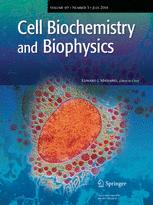 The authors of a paper on anesthetic waste gases in the operating room have pulled the article for plagiarism.
The authors of a paper on anesthetic waste gases in the operating room have pulled the article for plagiarism.
The paper, titled “Further Pieces of Evidence to the Pulmonary Origin of Sevoflurane Escaping to the Operating Room During General Anaesthesia,” appeared in Cell Biochemistry and Biophysics and came from a group at various institutions in Harbin, China.
But according to the retraction notice, the further pieces weren’t really further, after all:
The authors retract this article as it has plagiarized following article: Endotracheal tube cuff inflation with and without a pressure gauge to minimise sevoflurane pollution during intermittent positive pressure ventilation. Belam Tanko, Bela Fulesdi, Laszlo Novak, Csaba Peto and Csilla Molnar. Eur J Anaesthesiol 31:172–180. Published onlinem27 November 2013.
Like Retraction Watch? Consider supporting our growth. You can also follow us on Twitter, like us on Facebook, add us to your RSS reader, and sign up on our homepage for an email every time there’s a new post.
Again and again, we are seeing these unquantified plagiarism claims. This must stop. One of these days scientists are going to start suing the publishers for the lack of transparency and quantification. I am not condoning plagiarism by these authors, so let that be clear. But the publisher has the responsibility of releasing the most likely iThenticate report, and showing the scientific community the EXACT text that was plagiarized, and showing the original vs plagiarized texts. Also, the exact percentage of text that was plagiarized must be indicated. iParadigms is making a killing off science and the bedeviling of text copying and the demonization of plagiarism and self-plagiarism is resulting in great profitability for some corporate entities while science bleeds. Take, for example, the cases of misconduct in Japan that suddenly led to a boost in iThenticate sales worth hundreds of thousands of dollars to select Japanese universities. Suddenly, ethics, or the lack of it, is becoming great business, so we must now, as scientists, be wary of the purpose and business model of commercial blogs and “ethics”-related entities. Who is watching those who are watching us? We have to immediately request such detailed reports from publishers, in this case Springer, including of all prior retraction notices based on plagiarism, otherwise we will quickly fall into a pure tyrannical system without accountability, openness and transparency. Actually, I think this fall from grace and the iron-clad grip on power and “ethics”, in the name of profit, is taking place exponentially, so scientists have to stand up in unison and demand more of the publishers, too. Just yesterday, I challenged the logic of a leading Springer plant science journal’s EIC’s sudden plagiarism checking policy, without screening all prior papers already published with the same software or employing the same policies. I sense this is going to lead to a fiasco… Incidentally, is there are retraction based exclusively on self-plagiarism? Maybe Miguel Roig, the de facto intellectual leader on self-plagiarism, could provide some intel.